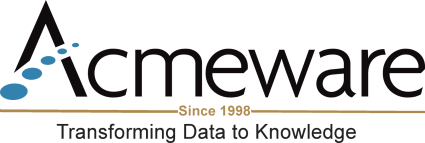CMS published the FY 2019 Inpatient Prospective Payment System (IPPS) Final Rule which aims to achieve greater interoperability and reduce burden so that hospitals are better able to deliver high quality care. To this end, CMS has finalized changes to the Hospital Inpatient Quality Reporting (IQR) Program and Medicare & Medicaid EHR Incentive Programs for eligible hospitals and critical access hospitals (CAHs).
Hospital Inpatient Quality Reporting (IQR) Program
Given CMS’ goal of reducing reporting and administrative burden on providers and creating a smaller set of meaningful measures, CMS had proposed to remove several measures from the Hospital IQR Program that are also in one of the value-based purchasing programs—Hospital Value-Based Purchasing, Hospital Readmissions Reduction, and Hospital Acquired Conditions Programs. To this end, CMS finalized a new measure removal factor, Factor 8, in that “The cost associated with a measure outweighs the benefit of its continued use in the program.” By means of the previously adopted removal factors and this newly adopted removal factor, CMS finalized the removal of several claims-based measures, web-based measures, chart-abstracted measures, and electronic clinical quality measures (eCQMs) over the next few reporting periods.
For CY 2019, CMS finalized that hospitals reporting to the IQR program must submit 4 self-selected eCQMs from the available set of 15 for at least one self-selected calendar quarter of CY 2019, with a submission deadline of February 29, 2020. These reporting requirements are the same as both CY 2017 and 2018 reporting. However, beginning with the CY 2020 reporting period, CMS finalized the removal of 7 of the 15 available eCQMs: AMI-8a, CAC-3, ED-1, EHDI-1a, PC-01, STK-8, and STK-10. Furthermore, beginning with CY 2019 reporting period, CMS requires that hospitals participating in IQR use only 2015 Edition certified EHR technology (CEHRT). Regarding chart-abstracted measures in the Hospital IQR Program, CMS finalized the removal of IMM-2, VTE-6 and ED-1 beginning with the CY 2019 reporting period and ED-2 beginning with the CY 2020.
Looking forward, CMS will take into account all comments received regarding potential future inclusion of a Hospital-Wide, All-Cause, Risk-Standardized Mortality measure and the Hospital Harm – Opioid-Related Adverse Events eCQM in the IQR program.
Medicare & Medicaid EHR Incentive Programs
CMS had previously renamed the Medicare & Medicaid EHR Incentive Programs EHR Incentive Programs as the Medicare & Medicaid “Promoting Interoperability (PI)” Programs. In this final rule, CMS finalized a new performance-based scoring methodology instead of the current threshold-based methodology beginning with CY 2019 reporting. To find out more on the new PI program structure, check out Acmeware’s blog: 2019 Promoting Interoperability.
Beginning with CY 2019 reporting period, CMS requires that all hospitals attesting to these programs use EHR technology certified to the 2015 Edition. CMS finalized that for CY 2019 and CY 2020, new and returning eligible hospitals and CAHs will be required to attest to objectives and measures for a minimum of any continuous 90 days during the respective calendar year.
For CY 2019 electronic reporting of clinical quality measures (CQMs), CMS finalized that hospitals and CAHs must report 4 self-selected CQMs from the available 16 for at least one self-selected calendar quarter of CY 2019, with a submission deadline of February 29, 2020. These reporting requirements are the same as both CY 2017 and 2018 reporting and align with the IQR eCQM reporting requirements. Furthermore, CMS removed 8 of the 16 eCQMs beginning with the CY 2020 reporting period: AMI-8a, CAC-3, ED-1, EHDI-1a, PC-01, STK-8, STK-10 and ED-3. By removing ED-3, an outpatient eCQM, CMS completely aligns the eCQMs between the IQR Program and the Promoting Interoperability Programs for hospitals. Additionally, CMS will continue to consider the same new eCQM as for IQR, the Opioid Harm eCQM.
CMS strives to reduce burden and create more meaningful programs and measures for hospitals and providers. Should you have questions about your hospital reporting of eCQMs, objective measures, or chart-abstracted measures, please contact us.

